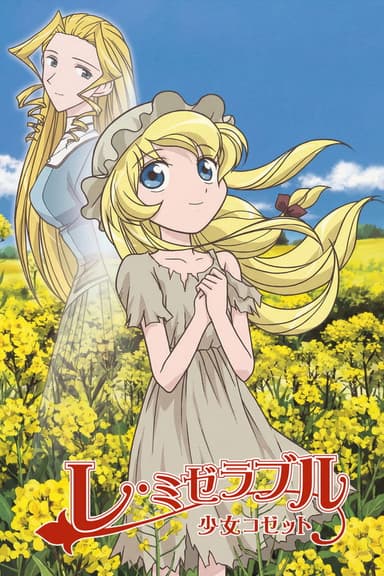
Les Misérables
2000 • Drama, War & Politics
Set against the background of the French Revolution and based on Victor Hugo's classic novel this is the story of Jean Valjean who is sent to prison for stealing a loaf of bread and is released after nineteen years. He meets and cares for a beautiful but poverty-stricken young girl named Fantine who has daughter Cosette. After Fantine's death Valjean brings Cosette up but he is haunted by Javert - a policeman whose search for Valjean has become an obsession.
Why you should read the novel
Victor Hugo’s Les Misérables, the magisterial novel underpinning the 2000 television series, offers a depth and scope that no screen adaptation can fully capture. Delving into themes of justice, redemption, and the transformative power of love, the novel presents a tapestry of characters whose personal struggles mirror the turbulent backdrop of nineteenth-century France. If you long to truly understand Jean Valjean’s motivations and the societal pressures bearing down on Fantine, Cosette, Javert, and Marius, the book’s nuanced internal monologues and rich context await you.
Unlike the condensed visual storytelling of the miniseries, the novel’s panoramic detail sweeps you through Parisian backstreets, revolutionary barricades, and rural villages, immersing you in the social and political realities of the time. Hugo uses his characters as a lens to probe the complexities of poverty, morality, and hope—sometimes stepping aside for poignant meditations that illuminate the era’s injustices and enduring relevance. Each page resonates with his passionate plea for humanity and compassion.
Picking up the novel is not just about revisiting a beloved story; it is about experiencing the literary artistry and philosophical breadth that have made Les Misérables a cornerstone of world literature. Read the source material to discover hidden motivations, profound social commentary, and Victor Hugo’s unique voice—elements often swept aside in even the most faithful adaptations.
Adaptation differences
One major difference between the 2000 television adaptation and Victor Hugo’s novel lies in narrative scope. The series, like most screen adaptations, significantly condenses the original story, omitting many of its detailed subplots and historical digressions. Examples include Hugo’s extensive reflections on the Battle of Waterloo, the history of convents, and social commentary chapters, all of which add depth and atmosphere to the novel but are absent from the TV version for pacing.
Characterization is also affected by the adaptation process. Major and minor characters alike are streamlined to fit time constraints, which inevitably reduces complexity. For instance, the internal struggles and transformations of Jean Valjean and Inspector Javert are depicted more directly onscreen, sometimes sacrificing the psychological depth and nuanced motivations that the novel painstakingly develops through their thoughts and inner conflicts.
The adaptation places a stronger focus on central dramatic events, such as the love story between Cosette and Marius or the pursuit of Valjean by Javert, while minimizing or altering the roles of secondary characters. Individuals such as Gavroche and Eponine, whose backstories and significance are richly explored in the novel, receive less emphasis or screen time, making them feel more like supporting players rather than essential parts of Hugo’s social tableau.
Lastly, thematic exploration in the television series is generally more surface-level. While Hugo spends entire chapters delving into philosophical issues—grace, redemption, revolution, and the nature of law and mercy—the series must prioritize plot over meditation. Therefore, viewers are not exposed to the same breadth of social analysis or the full force of the author’s passionate advocacy for the downtrodden, which are primary strengths of the literary work.
Les Misérables inspired from
Les Misérables
by Victor Hugo











